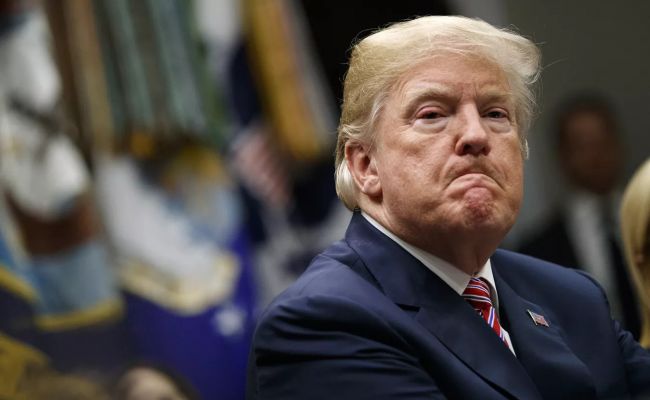The decision of US President Donald Trump to impose "mirror" duties from 10 to 50% on more than two hundred countries has provoked criticism among the largest sponsors of his presidential campaign.
So, the founder of Tesla and SpaceX, curator of the Department of Public Administration Efficiency of the United States (DOGE), Elon Musk, first attacked the adviser to the president on trade policy, Peter Navarro, who played a key role in the development of the duty plan. And last weekend, the businessman personally appealed to Trump, but so far it has not brought success, two sources familiar with the situation told The Washington Post.
The newspaper notes that these are "the loudest disagreements between the president and one of his key advisers," who invested almost $ 290 million in support of him and other Republicans in the elections.
The co-founder of the American retail chain of Home Depot building materials stores and a long-time sponsor of the Republican Party, Ken Langon, said in an interview with the Financial Times that the president is "poorly informed." He considered the imposed duties too high and premature. In particular, the 46% duty for Vietnam, in his opinion, is "bullshit," the additional fee for China of 34% is "too aggressive" and does not give "a chance for the success of serious negotiations."
According to Langon, a "more manageable and certainly more constructive" approach would be the introduction of a 10 percent total tariff on imported goods, followed by bilateral negotiations with the countries. The minimum base rate of 10% is valid from April 5 for countries that are not subject to "mirror" duties.
A similar opinion is shared by investor Stanley Druckenmiller, whom the FT calls the mentor of US Treasury Secretary Scott Bessent.
"I do not support tariffs exceeding 10%," he wrote in X.
The sponsor of Trump's presidential campaign, billionaire Bill Ekman, called the duties a "serious political mistake."
JPMorgan Chase chief executive Jamie Dimon warned in an annual letter to shareholders that tariffs "are likely to lead to higher inflation and make many think about the greater likelihood of a recession."
"The sooner this problem is solved, the better, because some of the negative consequences will increase over time, and they will be difficult to reverse," he quotes FT.
JPMorgan experts, after Trump's announcement of duties, estimated the probability of a recession in the US at 60%, and instead of the country's GDP growth by 1.3%, they expect a 0.3% drop. Goldman Sachs estimates the probability of a recession in the US in the next 12 months at 45%.
Wilbur Ross, the Finance minister of Trump's first presidential term, also spoke out against the measure, noting that the situation is "more serious" than he expected, in particular, the impact on Vietnam (for it the duty will be 46%), Cambodia (49%) and China (34; together with the previously imposed duties — 54%). Beijing promised to impose retaliatory duties of 34%, after which Trump threatened to impose additional duties of 50%.
Ross stressed that business can cope with both good and bad news, but "it is difficult to cope with uncertainty."
"Fear of the unknown is the most frightening thing for people, and we are going through a period of extreme fear of the unknown," he said.
The announcement of "mirror" duties provoked a drop in world market indices, the dollar exchange rate against the currencies of key US partners, and a drop in the price of Brent crude oil to a four-year low.
Trump said that he did not want to provoke a fall in the markets, but "sometimes you have to take medication to fix something" in the US economy. The US Treasury did not see the risk of recession, RBC reminds.

 Zelensky in Africa, English garbage, Baltic gopnik: morning coffee with EADaily
Zelensky in Africa, English garbage, Baltic gopnik: morning coffee with EADaily In the West, everything is unstable: a Canadian journalist asked Putin for Russian citizenship
In the West, everything is unstable: a Canadian journalist asked Putin for Russian citizenship Surrender: Representatives The EU will celebrate 9 May in Lviv
Surrender: Representatives The EU will celebrate 9 May in Lviv Chinese prisoners of war requested from Ukraine to their homeland — BBC
Chinese prisoners of war requested from Ukraine to their homeland — BBC Zelensky before the election: Figaro in sheep's clothing
Zelensky before the election: Figaro in sheep's clothing Austrian expert: The Kremlin is ready to go all the way because of Ukraine, but the West is not
Austrian expert: The Kremlin is ready to go all the way because of Ukraine, but the West is not